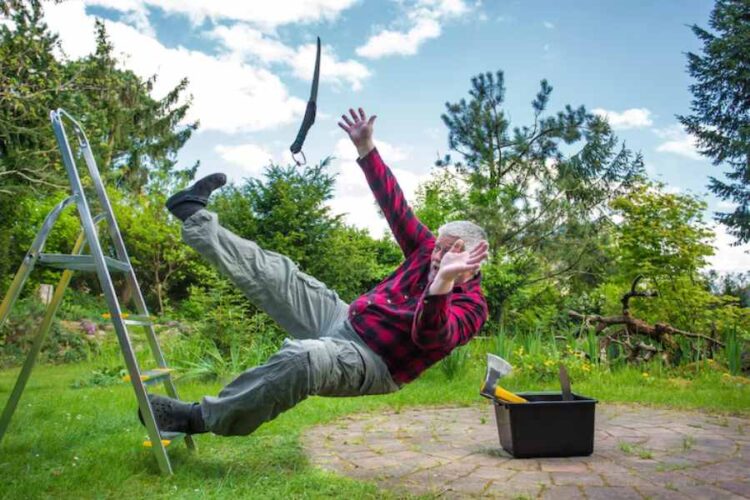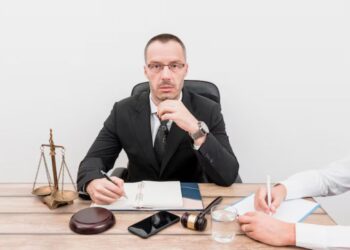Getting hurt in a slip and fall accident can change your life in seconds. You might face high medical bills, lost wages, and ongoing pain. Many people wonder if it’s worth pursuing a slip and fall case. The answer isn’t simple, but understanding the process can help you make the right choice.
Understanding Slip and Fall Cases
A slip and fall case is a type of personal injury claim. It happens when someone gets hurt because a property owner failed to keep their space safe. These cases fall under premises liability law.
Property owners have a legal duty to maintain safe conditions. When they don’t, and someone gets injured, they may have to pay for damages.
Common Places Where Slip and Fall Accidents Happen
- Grocery stores and shopping centers
- Restaurants and bars
- Hotels and apartment buildings
- Sidewalks and parking lots
- Office buildings and hospitals
Are Slip and Fall Cases Hard to Win?
The short answer is: it depends. Some slip and fall cases are easier to win than others. Success depends on several key factors.
Factors That Make Cases Easier to Win
Clear Evidence of Negligence When there’s obvious proof that the property owner was careless, cases become stronger. This might include broken stairs, wet floors without warning signs, or poor lighting.
Strong Medical Records Good medical documentation helps prove your injuries are real and serious. This includes emergency room visits, doctor’s notes, and treatment records.
Witness Statements People who saw your accident can provide powerful testimony. Their statements can support your version of what happened.
Factors That Make Cases Harder to Win
Lack of Evidence Without proof of dangerous conditions, cases become very difficult. Property owners often fix problems quickly after accidents happen.
Comparative Fault If you were partly responsible for your fall, it can hurt your case. For example, if you were texting while walking or wearing unsafe shoes.
Pre-existing Injuries Insurance companies often claim your injuries existed before the accident. This can complicate your case significantly.
The Burden of Proof in Slip and Fall Cases
In any slip and fall case, you must prove several things:
- The property owner owed you a duty of care
- They breached that duty by being negligent
- Their negligence directly caused your accident
- You suffered real damages from the accident
What You Need to Prove
The Owner Knew About the Danger You must show the property owner knew or should have known about the hazardous condition. This could be through:
- Previous complaints
- Maintenance records
- How long the danger existed
- Regular inspection schedules
The Condition Was Unreasonably Dangerous Not every slip and fall creates liability. The condition must be something a reasonable property owner would have fixed or warned about.
Types of Evidence in Slip and Fall Cases
Strong evidence can make or break your case. Here’s what helps:
Physical Evidence
- Photos of the accident scene
- Your damaged clothing or shoes
- Medical records and X-rays
- Incident reports from the property
Witness Evidence
- People who saw the accident happen
- Employees who knew about the dangerous condition
- Other customers who noticed the hazard
Expert Testimony
Sometimes you need experts to explain:
- How the accident happened
- What the property owner should have done
- The extent of your injuries
Common Challenges in Slip and Fall Cases
Several obstacles can make these cases difficult to win.
The “Open and Obvious” Defense
Property owners often argue that the danger was so obvious that you should have seen it. However, this defense doesn’t always work. Even obvious dangers can create liability if:
- The owner created the hazard
- You had no reasonable way to avoid it
- The danger was more serious than it appeared
Insurance Company Tactics
Insurance companies use many strategies to avoid paying claims:
- They question the severity of your injuries
- They blame you for the accident
- They offer quick, low settlements
- They delay the process hoping you’ll give up
Statute of Limitations
Every state has time limits for filing lawsuits. Most states give you 2-3 years from the accident date. Missing this deadline means losing your right to sue forever.
How a Slip and Fall Lawyer Can Help
Working with a slip and fall lawyer improves your chances significantly. Here’s what they do:
Investigation and Evidence Gathering
- Obtain security camera footage
- Interview witnesses quickly
- Collect maintenance records
- Document the accident scene properly
Dealing with Insurance Companies
A personal injury attorney knows how insurance companies work. They can:
- Handle all communications
- Negotiate fair settlements
- Prevent you from making costly mistakes
- Take your case to trial if needed
Calculating Your Damages
Lawyers help determine the true value of your case, including:
- Medical expenses (current and future)
- Lost wages and reduced earning capacity
- Pain and suffering
- Permanent disability costs
Building a Strong Slip and Fall Case
If you’ve been injured, here’s how to protect your rights:
Immediate Steps After Your Accident
- Seek medical attention right away
- Report the incident to the property owner
- Take photos of everything
- Get witness contact information
- Keep all medical records and receipts
What Not to Do
- Don’t give recorded statements to insurance companies
- Don’t sign any documents without legal advice
- Don’t post about your accident on social media
- Don’t wait too long to seek legal help
When to Consider Legal Action
You should think about filing a trip and fall claim if:
- Your injuries are serious or permanent
- You’ve missed significant work time
- Medical bills are piling up
- The property owner denies responsibility
- Insurance offers seem too low
A premises liability lawyer can evaluate whether you have a strong case worth pursuing.
Factors That Affect Personal Injury Compensation
The amount you might receive depends on several factors:
Economic Damages
- Medical bills and treatment costs
- Lost wages and benefits
- Future medical expenses
- Reduced earning capacity
Non-Economic Damages
- Pain and suffering
- Emotional distress
- Loss of enjoyment of life
- Permanent scarring or disfigurement
Timeline for Slip and Fall Cases
Most cases resolve within 6-18 months, but complex cases can take longer. The timeline depends on:
- Severity of your injuries
- Willingness to negotiate
- Amount of evidence available
- Court schedules if trial is needed
Maximizing Your Chances of Success
To improve your odds of winning:
- Act quickly to preserve evidence
- Follow all medical treatment recommendations
- Keep detailed records of everything
- Work with an experienced attorney
- Be patient with the legal process
An injury compensation claim requires careful preparation and strong evidence. Don’t try to handle it alone.
Conclusion
Winning a slip and fall case isn’t impossible, but it requires the right approach. Success depends on having strong evidence, proper legal representation, and proving the property owner’s negligence caused your injuries.
While these cases can be challenging, many victims successfully recover compensation for their damages. The key is understanding what makes a case strong and taking the right steps from the beginning.
If you’ve been injured in a slip and fall accident, don’t assume your case is too difficult to win. Consult with a qualified attorney who can evaluate your situation and explain your options. With the right help, you can protect your rights and seek the compensation you deserve.
Frequently Asked Questions
What is the first step after a slip and fall?
Seek immediate medical attention, even if injuries seem minor. Then report the incident to the property owner and document everything with photos.
Can I sue if I was partly at fault?
Yes, in most states you can still recover damages even if partially responsible, though your compensation may be reduced.
How long does a slip and fall case take?
Most cases settle within 6-18 months, but complex cases with serious injuries may take 2-3 years to resolve completely.
Do I need a lawyer for a fall injury?
While not required, having an attorney significantly improves your chances of success and ensures fair compensation for your injuries.
What damages can I claim?
You can seek compensation for medical bills, lost wages, pain and suffering, future medical costs, and other accident-related expenses.










